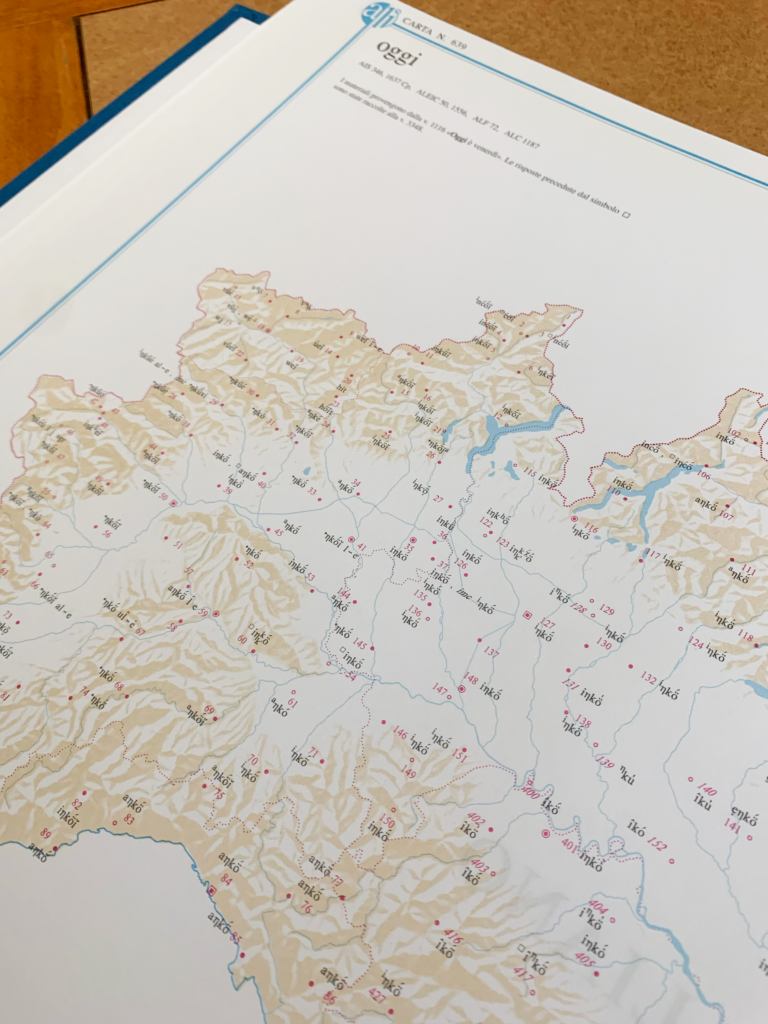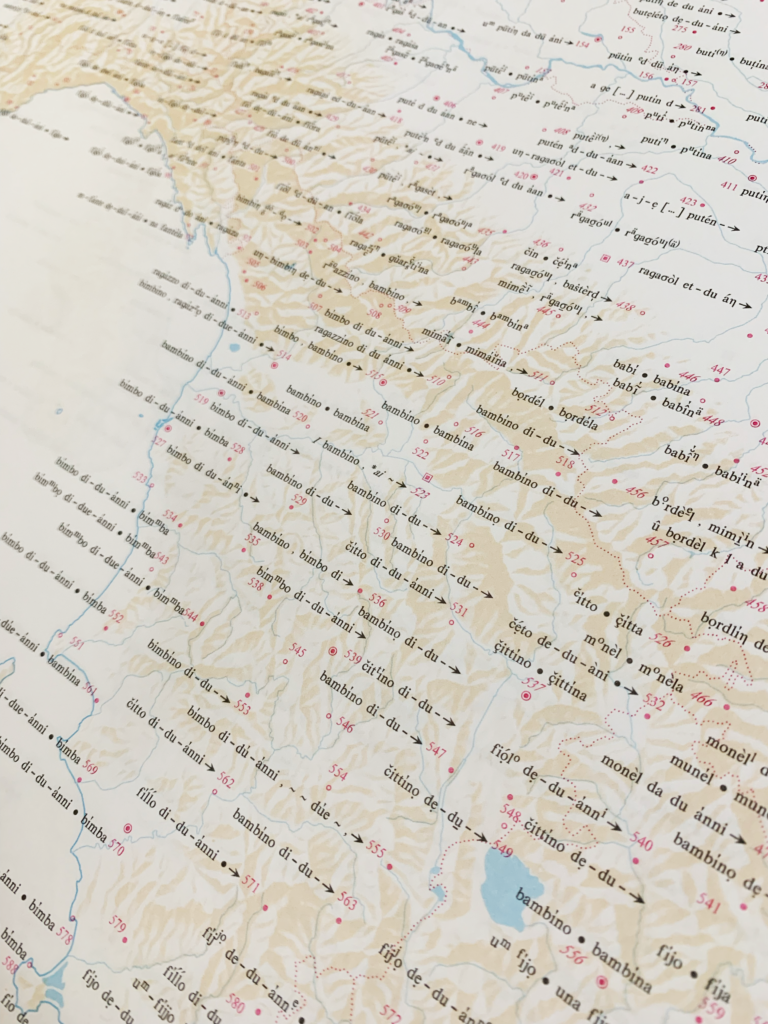With its tenth volume recently added to the UC Berkeley Library, the Atlante Linguistico Italiano is a unique piece of the Library’s map collections. Each entry in the atlas begins with a single concept, notion or phrase in standard Italian such as cuore, heart. Accompanying this is a map of the Italian peninsula (along with Sicily and Sardinia) that contains the equivalent term, rendered in IPA, as heard in communes all across the country. The lexical and phonetic variations of a single word play out in gradients across the landscape with small changes from one commune to the next that give way to seismic ones from one region to another. The result is a condensed roadmap of the immense linguistic diversity of Italy.
As of now, the ten available volumes cover lexical items in the following spheres: the human body, clothing, the home, food, family, and society, with many other spheres such as fauna, commerce, and agriculture yet to be published. While this work is comprehensive in its treatment of geographic variants, it says unfortunately very little about diastratic variation or the relative social capital of the varieties it contains. With its data now over 30 years old, and many of its constituent dialects likely under the threat of extinction, the Atlante may soon start to take on historic and diachronic intrigue as well.

And if you’re thinking of taking these volumes home with you, think twice. They won’t fit in your backpack. They are big and heavy, measuring 49 x 71 centimeters each, and best consulted in the comfort of the Main Stacks.
Pellis, Ugo, and L. (Lorenzo) Massobrio. Atlante linguistico italiano / materiali raccolti da U. Pellis [and others] ; redatto da L. Massobrio [and others]. Roma: Istituto Poligrafico e Zecca dello Stato, Libreria dello Stato, 1995.
Main (Gardner) Stacks fff PC1711 .A89 1995 v.1-10
